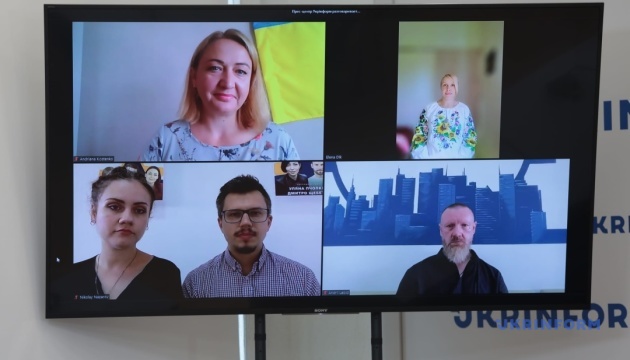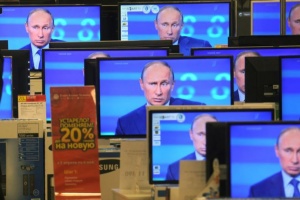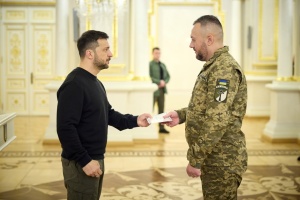
Ukraine should build effective technology to counter Russian narratives - expert
That’s according to Andriy Lebid, PhD, Professor at the Department of Psychology, Political Science and Socio-Cultural Technologies at the Sumy State University, who spoke at the presentation of the analytical report "The War of Narratives: Image of Ukraine in Media," hosted by Ukrinform.
"The urgent task for Ukraine in the conditions of Russia’s full-scale war against our country is not only about shaping a proper Ukrainian narrative, but also constructing an actually effective model, effective technologies for countering Russian narratives. This is not some kind of permanent phenomenon, since Russian narratives are supplemented, transformed, and acquire new forms constantly," Lebid said.
He noted that the formation of Russian narratives has logically gone through several stages and in fact these narratives have transformed as well.
According to him, an integral component of Russian narratives is the idea of a special path of development, the superiority and uniqueness of Russian civilization.
Mykola Nazarov, candidate of political sciences, head of the Center for Regional Security Studies at the Sumy State University, noted that since 1991, Ukraine has not had its own narrative that it could pitch to the world.
"If you don’t have your own narrative, this narrative is created by someone else. And we see how narratives for Ukraine were created either by Russia or by Western nations due to their own understanding of the processes developing in Ukraine, quite often misunderstanding these processes. But to a greater extent , the narratives we are investigating in the Western media are those created by the Russian Federation, and which for years and decades, through their media and their intelligence networks, were conveyed to and spread in the West. Unfortunately, the image of Ukraine in Western countries was massively shaped by the Russian Federation," said Nazarov.
He emphasized that only recently, after Russia's aggression of 2014, did some countries begin to ban or suspend the operations of Russian media as they had openly promoted hostile, anti-Ukrainian, and anti-European narratives.
As Ukrinform reported earlier, referring to the Kyiv International Institute of Sociology, up to 20% of Ukrainians remain under the influence of Russian propaganda.
Photo: Hennadiy Minchenko




